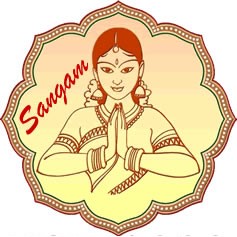originally published November 6, 2003
 Press Release
Press Release
The Sangam and the world at large are shocked at the reckless behaviour of Sri Lanka President Kumaratunge, who places her own political agenda before the needs of the people of the island.
On Oct. 31, 2003 the LTTE, on behalf of the Tamil people, announced their proposal for an Interim Self-Governing Administration (ISGA) of the Tamil areas. This proposed ISGA is a significant step toward a peaceful resolution of the decades-long conflict between the Tamil and Sinhalese peoples.
The world applauded this proposal by the LTTE. US Deputy Secretary of State Armitage said that the proposal is “the first time I have seen such a comprehensive delineation of the aspirations of the LTTE…it is significant,” the EU stated that the proposal is an “important step forward in the peace process,” and ex-Ambassador to Sri Lanka Schaffer said, “the LTTE has presented an ambitious proposal.”
Sinhala chauvinists – of which Pres. Kumaratunge is one – consider this proposal for an interim autonomous entity anathema. Kumaratunge used this eminently reasonable and achievable proposal of the LTTE as an excuse to precipitate a political, constitutional and military crisis.
Tamil people at large have for a long time been convinced that an independent Tamil Eelam is the best mode of co-existence with the Sinhalese community. Yet they support the compromise proposal for an interim autonomous authority as offered by the LTTE in the Norwegian-facilitated peace dialogue. It is ironic that when the Tamils insist on independence, there is a military response by the state, and when the Tamils propose a compromise, there is also a drastic response by the state.
Many may be shocked at Pres. Kumaratunge’s ill-considered behavior, but the Tamil community is not. We know only too well her paradoxical behavior, which is well-embodied by her Orwellian phrase ‘war for peace’ – used to justify her genocidal war against the Tamils from 1995 to 2000. Tamils cannot forget the destruction caused by the Kumaratunge, Ratwatte and Kadirgamar trio.
The Tamils are also well aware that each and every attempt at solving the conflict by allowing Tamils their rights is always sabotaged by the party in opposition at a given time. Today’s case is no different from the UNP’s Jayawardene’s successful abrogation of the Bandaranaike – Chelvanayagam Pact to accomodate a measure of Tamil autonomy in 1957, the SLFP’s destruction of the All-Party Conference convened by Jayawardene in 1979, the SLFP’s agitation against the Dudley Senanayake – Chelvanayagam Pact in 1965, the SLFP’s hostility to the Premadasa – LTTE talks in 1989, and the UNP’s efforts to derail the PA – LTTE talks in 1994/5. The two main Sinhala-dominated political parties only come together and vote together to enact laws directed against the Tamils, e.g. the Sinhala-Only Act of 1957 and the controversial 1972 and 1978 Constitutions.
Democracy in Sri Lanka does not work for peace, but against it.
Distressingly there are also hints that this crisis is a result of geopolitical rivalry over control of the Indian Ocean playing itself out. Outside powers and their agents may be using turmoil to further their own interests.
Most worrisome, however, is the very real danger that President and Commander-in-Chief Kumaratunge may intentionally provoke a return to war with the LTTE.
The Sangam calls on all those with an interest in a peaceful resolution of the national conflict to persuade Kumaratunge and Wickremesinghe to act in a bipartisan fashion to solve the festering ethnic problems expeditiously or let the Tamils go their own way.
November 6, 2003
For more information, contact the Sangam’s Secretary at